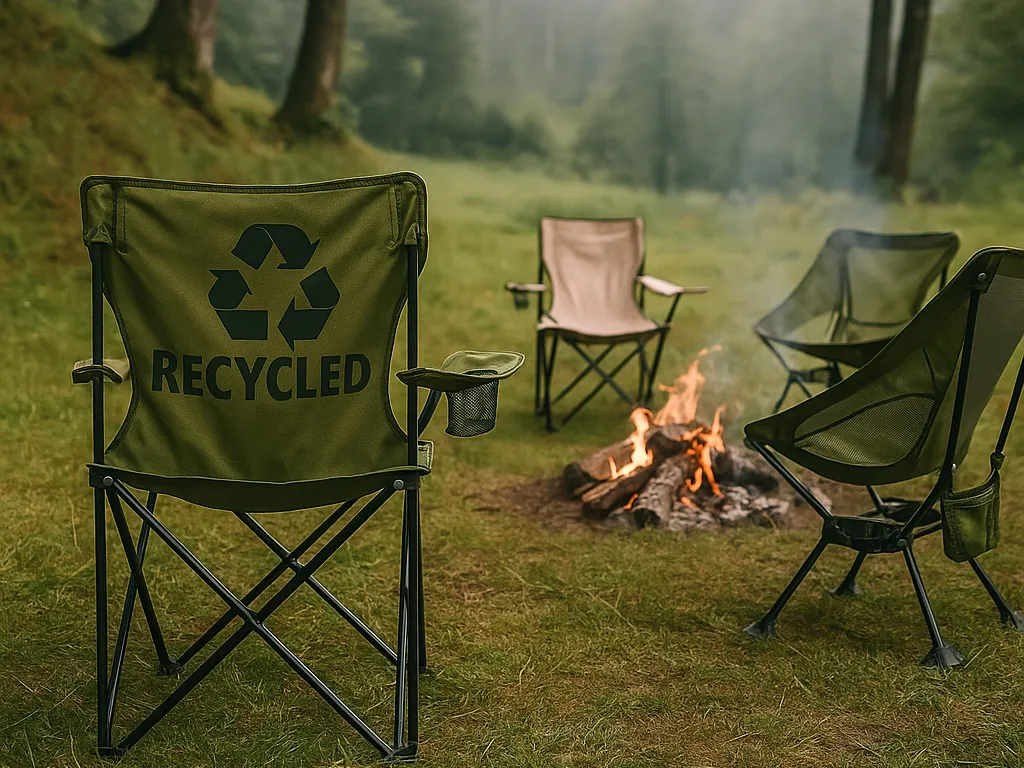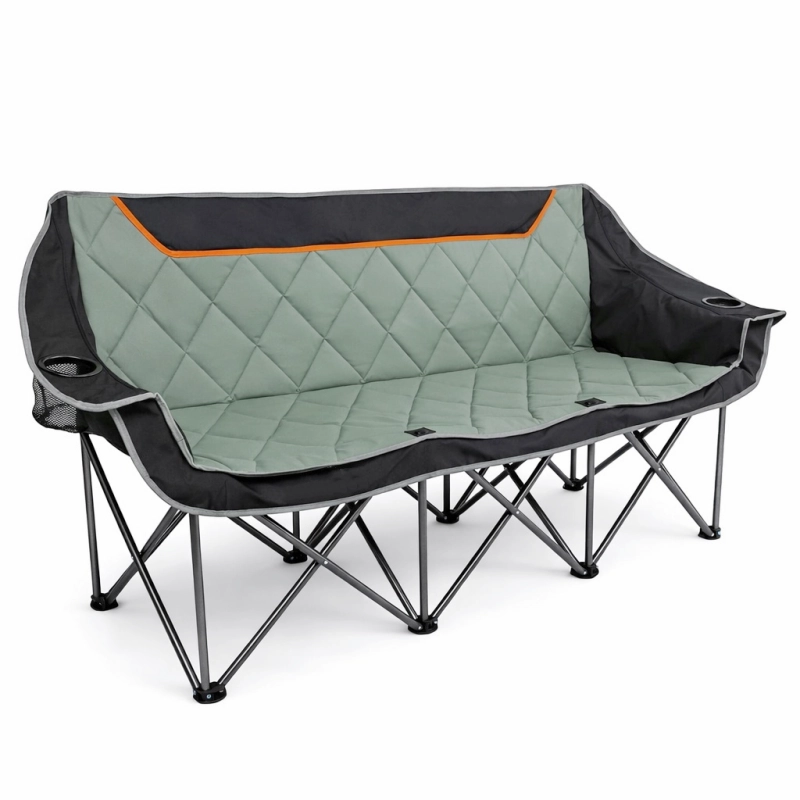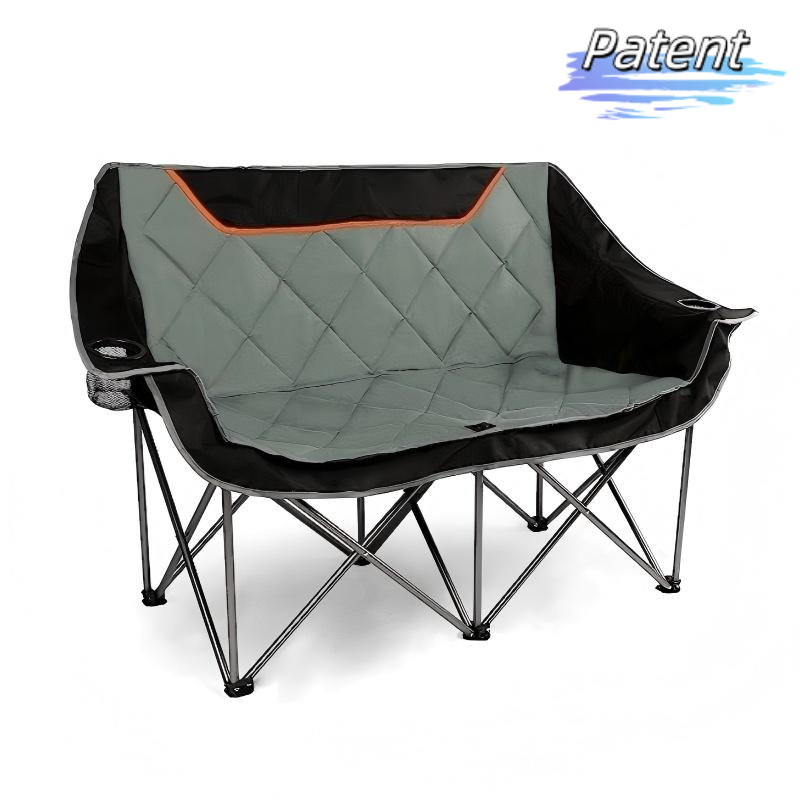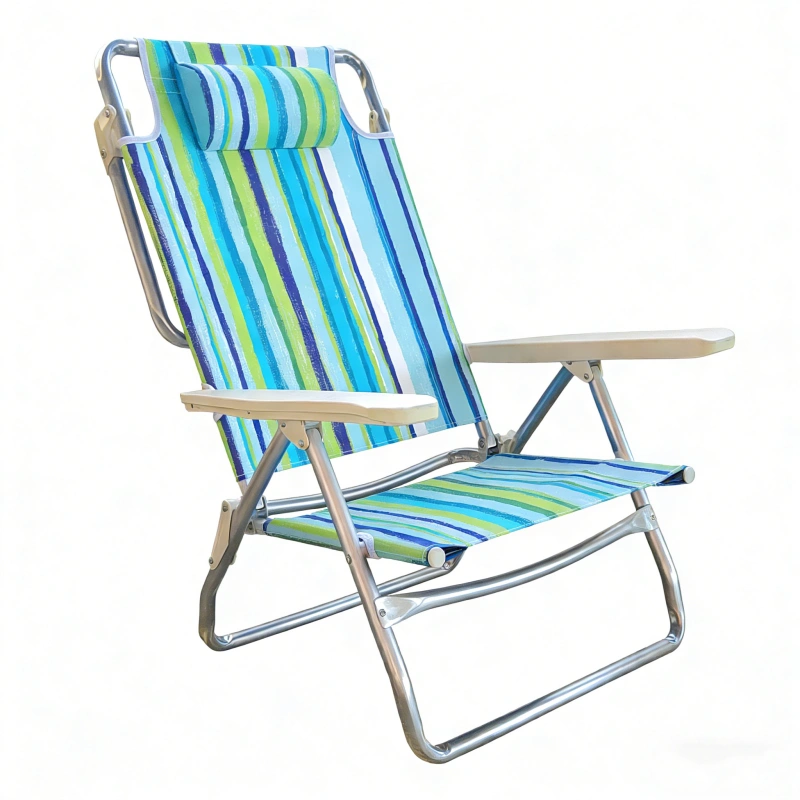As sustainability becomes a global priority, camping chair manufacturers are moving toward eco-conscious production methods. From recycled fabrics to responsibly sourced metals, camping chair manufacturers are reconsidering every component to meet environmental standards and consumer demand.
How camping chair factories are integrating eco-friendly materials into their production processes, the growing importance of camping chair OEM services focused on sustainability, and how these changes improve the quality of top-tier camping chairs are included in this article. We also provide comparisons, industry insights, and future forecasts to help importers, brands, and buyers make informed decisions when selecting a responsible camping chair manufacturer.
The Rise of Sustainability in the Camping Gear Industry
The outdoor recreation market is growing fast. The camping gear segment alone is expected to surpass USD 20 billion by 2027. As this market expands, environmental awareness is pushing camping chair manufacturers to rethink their material choices and production methods. Consumers in regions like Europe and North America are increasingly demanding eco-friendly products, and brands are responding.
This shift toward sustainability is more than a passing trend—it’s becoming an industry standard. Regulatory measures like the EU’s REACH directive, California’s Proposition 65, and stricter ESG mandates are prompting manufacturers to adjust their practices.
Why Camping Chair Manufacturers Are Going Green
Sustainable practices in camping chair production benefit both the environment and the business. Here’s why manufacturers are adopting these methods:
- Consumer Demand: 73% of millennials are willing to pay more for sustainable goods.
- Supply Chain Pressure: Brands need eco-certifications from their suppliers.
- Brand Differentiation: Sustainability is a key marketing advantage.
- Regulatory Compliance: Stricter material regulations are in place globally.
Common Eco-Friendly Materials Used in Camping Chair Production
| Material | Description | Environmental Benefit |
| Recycled Polyester (rPET) | Made from used plastic bottles | Reduces landfill & ocean plastic |
| Bamboo | Renewable alternative to wood/aluminum | Grows fast, low carbon footprint |
| Recycled Aluminum | Sourced from post-consumer waste | Uses 95% less energy than new aluminum |
| FSC-Certified Wood | Responsibly sourced timber | Protects forests and biodiversity |
| Dyneema® Composite Fabrics | Ultralight & durable | Less material needed, longer lifespan |
These materials not only reduce the environmental footprint but also enhance the durability and design of camping chairs.

Case Study: Sustainable OEM Production for European Market
Last year, a European outdoor brand came to Fairwind Camping for an OEM solution for camping chairs that met both design and sustainability standards. The selected manufacturer provided:
- FSC-certified wooden frames
- Recycled polyester seat covers
- Powder-coated, recycled aluminum legs
- Biodegradable packaging
The result was a high-quality camping chair that exceeded both performance and sustainability expectations, boosting the brand’s green image in Nordic markets.
Top Features Buyers Expect from Eco-Friendly Camping Chairs
Modern consumers expect eco-friendly camping chairs to be just as functional as traditional ones. Successful manufacturers strike a balance between sustainability and performance. Key product features include:
- Lightweight, portable design
- Load-bearing capacity of over 100kg
- Ergonomic comfort
- Easy maintenance
- Certifications like GRS, FSC, OEKO-TEX
When selecting a camping chair OEM partner, look for manufacturers that integrate sustainability across all stages—from R&D and prototyping to mass production.
Comparison: Traditional vs. Eco-Friendly Camping Chair Models
| Feature | Traditional Chair | Eco-Friendly Chair |
| Frame Material | Steel or virgin aluminum | Recycled aluminum or bamboo |
| Fabric | Oxford or nylon | rPET or recycled canvas |
| Weight | 2.5–3.5kg | 1.8–3kg |
| Carbon Footprint | High | Reduced by 30–60% |
| Durability | Standard | Extended lifespan |
| Price | Slightly lower | Competitive, with long-term savings |
How Fairwind Camping Leads in Sustainable Chair Manufacturing
At Fairwind Camping, sustainability is at the core of our operations. We’ve made significant investments in:
- Renewable energy-powered factory operations
- Ethical sourcingof aluminum and fabrics
- In-housecustomizable OEM design services with a focus on sustainability
- Rigorousquality control to ensure each chair meets global standards
Our product range includes ultralight Dyneema® chairs, folding bamboo-frame chairs, and compact hiking stools made with rPET fabric—all designed to meet the needs of eco-conscious outdoor brands globally.
FAQs
- What makes a camping chair eco-friendly?
An eco-friendly chair uses recycled or renewable materials, minimizes emissions during production, and comes in recyclable or biodegradable packaging. - Do eco-friendly chairs perform as well as traditional ones?
Yes. Eco-friendly materials like Dyneema® and recycled aluminum offer equal or better strength and comfort compared to conventional chairs. - Can OEM orders be customized with sustainable materials?
Yes. Top camping chair OEM suppliers, including Fairwind Camping, offer sustainable options for fabrics, frames, and packaging. - Is the cost of sustainable camping chairs higher?
While unit costs may be slightly higher, the long-term value, durability, and appeal to eco-conscious consumers often justify the investment. - What certifications should I look for in an eco-friendly camping chair?
Look for certifications like FSC, GRS (Global Recycled Standard), OEKO-TEX (for fabric safety), and REACH (for EU compliance).
Conclusion
The shift toward sustainability is reshaping the outdoor industry. For brands and importers, choosing a manufacturer that aligns with environmental values is both a strategic and ethical decision. Eco-friendly camping chairs, produced in responsible factories, offer durability, performance, and a smaller carbon footprint—without sacrificing quality.
As demand for sustainable products grows, OEM services focused on flexible, eco-friendly production methods will lead the industry. By embracing these innovations, brands can differentiate themselves in a competitive market while contributing to a healthier planet.
At Fairwind Camping, we combine craftsmanship, sustainability, and extensive OEM expertise to deliver high-quality camping chairs that meet the evolving needs of outdoor brands worldwide. Whether you’re launching a new product or upgrading an existing one, we’re ready to support your brand’s green evolution.




